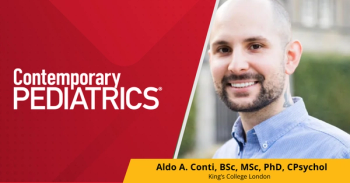
Pediatricians could do more to provide tobacco counseling
Most pediatricians advise patients and their parents who smoke to quit, and the proportion of those who do so changed little from 2004 to 2010, according to surveys conducted in those years.
Most pediatricians advise patients and their parents who smoke to quit, and the proportion of those who do so changed little from 2004 to 2010, according to surveys conducted in those years. In 2010, 85% of pediatricians advised adolescents who smoke to quit (vs 81% in 2004). Far fewer went further than that, however; 34% discussed quitting techniques in 2010 (vs 32% in 2004), and 17% recommended nicotine replacement medications (vs 18%).
A comparison of results of these national surveys of American Academy of Pediatrics members also found that in 2010, compared with 2004, more pediatricians reported helping patients to assess reasons for and against continuing to smoke and referred patients to quit lines or enrolled them in a smoking cessation program. In 2010, however, fewer pediatricians than in 2004 planned a follow-up visit or call.
As for counseling parents who smoke, slightly more pediatricians in 2010 (14.7% compared with 10.6% in 2004) referred these parents to a quit line or enrolled them in a smoking cessation program (
Thoughts from Dr. Burke
So, it seems that we do a pretty good job advising patients and parents to quit smoking, but we have room for improvement in helping them to follow our advice. The American Academy of Pediatrics Julius B. Richmond Center of Excellence offers lots of resources to help with this task, everything from information on motivational interviewing to advice on how to code and bill for time spent counseling about tobacco product use. Check out this website by searching “Richmond Center” on the
Newsletter
Access practical, evidence-based guidance to support better care for our youngest patients. Join our email list for the latest clinical updates.






